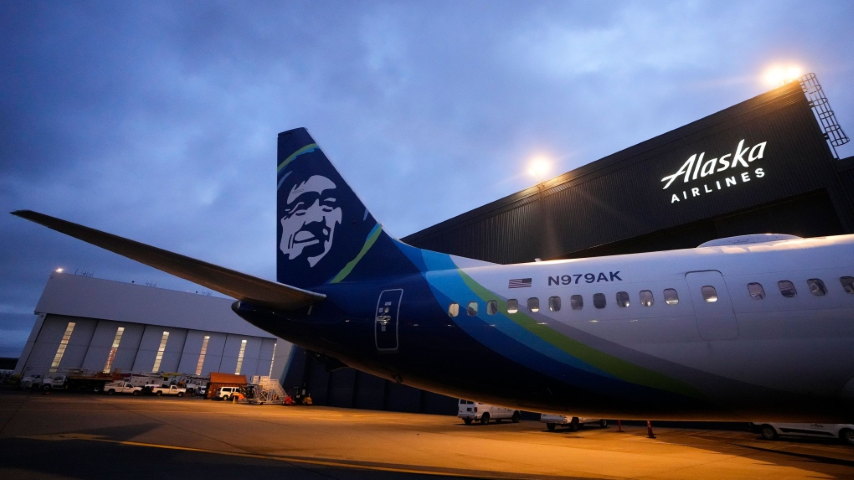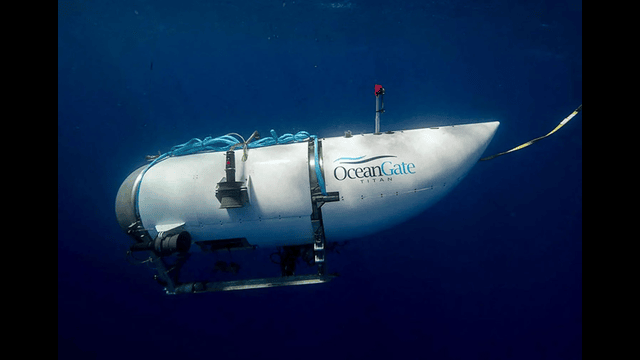
A Boeing 737 Max 9 aircraft from Alaska Airlines, captured in a file photo. (Photograph by Lindsey Wasson/AP)
Unfavourable winter weather conditions and the grounding of Boeing 737 Max 9 aircraft have led to significant disruptions in air travel, with more than 1900 flight cancellations reported on Friday morning, marking the highest figure since July 2023, according to data from the tracking site FlightAware.
The majority of cancellations are attributed to a winter storm wreaking havoc in the Midwest, impacting airports notably in Chicago. O'Hare and Midway airports are experiencing a substantial number of departing flight cancellations, with almost 40% and over 60%, respectively, affected.
A proactive approach by airlines is evident, as O'Hare airport announced the cancellation of over 650 flights. The winter storm is also affecting air travel in Denver and Milwaukee, where nearly 40% of flights are cancelled.
Adding to the disruption are flight cancellations resulting from the grounding of Boeing 737 Max 9 planes. United and Alaska Airlines have each cancelled more than 200 flights daily this week due to the FAA-mandated grounding. The FAA and Boeing are currently working to establish an inspection protocol that would allow these planes to resume operations.
Southwest Airlines, despite not operating the 737 Max 9, has also experienced a significant impact, cancelling nearly 400 flights, the highest among all airlines, according to FlightAware.
The troubles for Alaska and United Airlines persist following the grounding of over 150 Boeing 737 Max 9 aircraft by the FAA after an Alaska Airlines flight experienced a fuselage incident. Alaska Airlines announced the cancellation of all 737-9 MAX flights through Saturday, January 13, affecting approximately 110-150 flights per day.
Both airlines reported findings of loose hardware or bolts in the assembly of door plugs, a component involved in the recent incident. The FAA has ordered the grounding of affected Max 9s until emergency inspections, taking approximately four to eight hours per aircraft, are conducted. Documentation from Boeing and the FAA is awaited by Alaska Airlines to initiate inspections.
A flexible travel policy has been implemented by Alaska Airlines, allowing passengers to change, cancel, or rebook flights. United Airlines, facing a 10% cancellation rate on Friday, is awaiting final approval on the inspection process and anticipates significant cancellations in the coming days.
Amidst these challenges, the FAA has initiated an investigation into Boeing's quality control in response to the in-flight blowout incident. Boeing CEO Dave Calhoun acknowledged a "horrible escape" in manufacturing and quality control processes.
The National Transportation Safety Board is conducting a separate investigation, and a class action lawsuit has been filed against Boeing on behalf of passengers from the affected Alaska Airlines flight.
For United Airlines, already facing difficulties in 2023, this adds to a challenging year marked by a widespread service meltdown and thousands of flight cancellations last summer.















